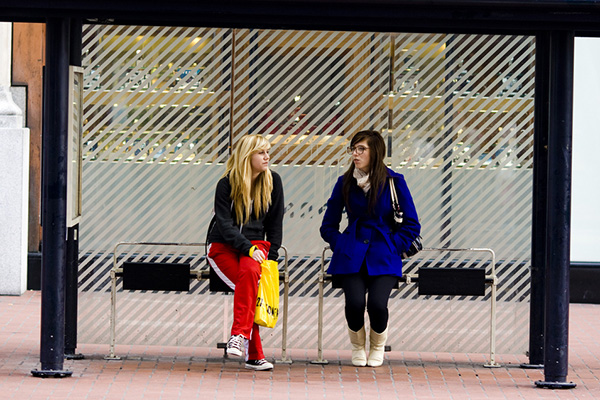New research showing the impact of growing up in the Recession will be presented to an audience of policy makers, opinion formers and academics at an event chaired by Lucy Rock from The Observer in London on Friday 15 March.
- Mark Taylor, Professor of Economics at the Institute for Social and Economic Research, presents new research on the impact of the macroeconomic climate on educational aspirations and attitudes of 11-15 year olds.
- Jonathan Wadsworth, Professor of Economics at Royal Holloway, University of London questions whether the outcomes of this recession on the youth labour market are unprecedented.
- Richard Dorsett, Director of Policy Evaluation at the National Institute of Economic and Social Research, examines the importance of early labour market experiences in young people’s transitions into employment and illustrates how this can help the design of interventions aimed at improving young people’s employment prospects.
- The charity Rathbone will present a panel of young people from Bury and Chorley to reflect on their experiences, aspirations and ambitions growing up in Recession Britain. Rathbone is the UK-wide voluntary youth sector organisation providing opportunities for young people to transform their life-circumstances by re-engaging with learning, discovering their ability to succeed and achieving progression to further education, training and employment.
The event will take place in King’s Place in London at 2pm-5pm on Friday 15 March.
For more information please email lcullen@essex.ac.uk
Please note that places are limited.
The ESRC Research Centre on Micro-social Change (MISOC) is a multidisciplinary centre, promoting collaboration between economists, sociologists and other social scientists. MISOC is based at the Institute for Social and Economic Research at the University of Essex.
Mark Taylor explains his research:
“In recent years, the policy debate in the UK has increasingly focused on young people’s educational aspirations, attitudes and expectations. This research investigates the impact of the macroeconomic climate on educational aspirations and attitudes of 11-15 year olds in Britain, drawing on data from the British Youth Panel component of the British Household Panel Survey and Understanding Society covering 1994-2010. We find that the prevailing youth unemployment rate has a positive and statistically significant impact on educational attitudes and aspirations among children with highly educated parents and parents who themselves hold positive attitudes to education, but is less apparent among children with low educated parents and parents with less positive views towards education. This suggests that negative economic shocks exacerbate differences in educational aspirations and motivations by socioeconomic status, and are therefore likely to have longer-lasting effects.”
Jonathan Wadsworth will speak on the UK Youth Labour Market.
“Young adults have always been at greater risk of experiencing higher unemployment rates than others in the UK. In economic downturns these risks are amplified, often accompanied by concerns for a “lost generation”. This study examines the relative performance of young people over the current downturn and examines whether the latest youth labour market outcomes are unprecedented."
Richard Dorsett will look at young people’s labour market transitions: the importance of experience (with Paolo Lucchino)
" We investigate young people’s labour market transitions beyond compulsory schooling and, in particular, the dynamic effects of early experiences. We distinguish between three possible states: employment, education and NEET (Not in Employment, Education or Training). The results provide new evidence on the extent to which the length of time in a state influences the probability of changing state. For instance, we confirm that being NEET for more than six months reduces the probability of subsequently finding work.
Conversely, the longer a young person remains in work, the more secure their employment position becomes. We show prior experience to have a complex pattern of effects and demonstrate this through a simulation exercise. This illustrates the evaluation potential of the model and provides some clues for the design of interventions aimed at improving young people’s employment prospects."
More information on the event page Growing up in Recession Britain
